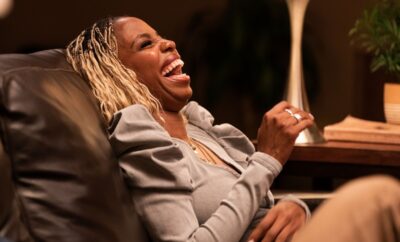Movie Reviews
Unladylike2020
By: Jennifer Vintzileos
As part of the PBS American Masters programming, Unladylike2020 is a 26-short series to showcase women who are considered “unsung heroes.” In an hour-long special for its premiere on PBS, five women are given the spotlight as their contributions to American democracy are discussed. From taking positions of political power, joining civil rights movements to tackle racism, fighting for Women’s Suffrage, helping to create one of the biggest organizations and those who use their talents to bring light to injustice in their community—each one brought about changes by demanding rather than waiting.
Those five “unsung heroes” comes in all shapes and sizes. From the get-go, you are drawn in not to their well-known accomplishments, but their backstory:
Martha Hughes Cannon – First Woman State Senator: Martha Hughes Cannon attends medical school at the University of Michigan and later graduate work at UPenn. At twenty-five years old she opens her own private practice and later becomes head surgeon at Deseret Hospital (now LDS Hospital), which is run by women.
Jovita Idár – Mexican-American Journalist and Civil Rights Activist: Jovita Idár was one of eight children and her father Nicasio believed that women had a right to have a voice. She would later use her voice as a journalist to write about the injustices done to Mexican Americans and start her own newspaper Evolucion.
Jeannette Rankin – First Woman to Serve in U.S. Congress: Jeannette Rankin grows up in a well-to-do family in Missoula, Montana and initially pursues a career of social work. She never feels compelled to marry or have children, but when she does get elected twice to the House of Representatives (1916 & 1940) she is the only person who has voted against going to war for both World War I & World War II.
Mary Church Terrell – Suffragist and Co-Founder of the NAACP (National Association for the Advancement of Colored People): Mary Church Terrell grows up in Memphis, Tennessee as part of the “black elite of Memphis.” Her father, Robert Reed Church, is the first African-American millionaire in the South. It was the death of a childhood friend killed by a lynch mob that pushed her towards a life of activism.
Zitkála-Šá – (Red Bird/Gertrude Simmons Bonnin) – American Indian Composer, Author, Civil Rights Leader: Zitkála-Šá is forced to erase tribal identity as she attends boarding school in Indiana, but she eventually attends Earlham College and then the New England Conservatory of Music in Boston. While it is her exposés in Atlantic Monthly that raised hairs from those who fought to shun the American Indian heritage, it was her 1913 opera “The Sun Dance” where she fought to elevate sacred tribal dances and American Indian heritage.
PBS truly brings forth a tremendous effort to highlight women who may not be well-known, but inspire us to learn more. You truly gain a sense of understanding that they were pioneers in the way we view not only the rights of women, but culture as a whole. Not their status nor their nationality stopped them from pursuing the fight towards equality that some still battle today. Eventually, women do get the right to vote. However, Mexican-Americans have gained more of a voice in American culture yet still continue to fight for the “American dream.” The NAACP is formed and black women eventually get the right to vote in more than just name. American Indians win the fight for citizenship with the Indian Citizenship Act of 1924. These steps would not have been possible if there weren’t people out there willing to stand out for the greater good.
While the battle for equality among our citizens still continues, at least we gain a better understanding and respect of the women who helped pave the way. Their legacies continue to live on. Hopefully, we learn to never take that for granted. Unladylike2020 airs July 10th on PBS.





You must be logged in to post a comment Login